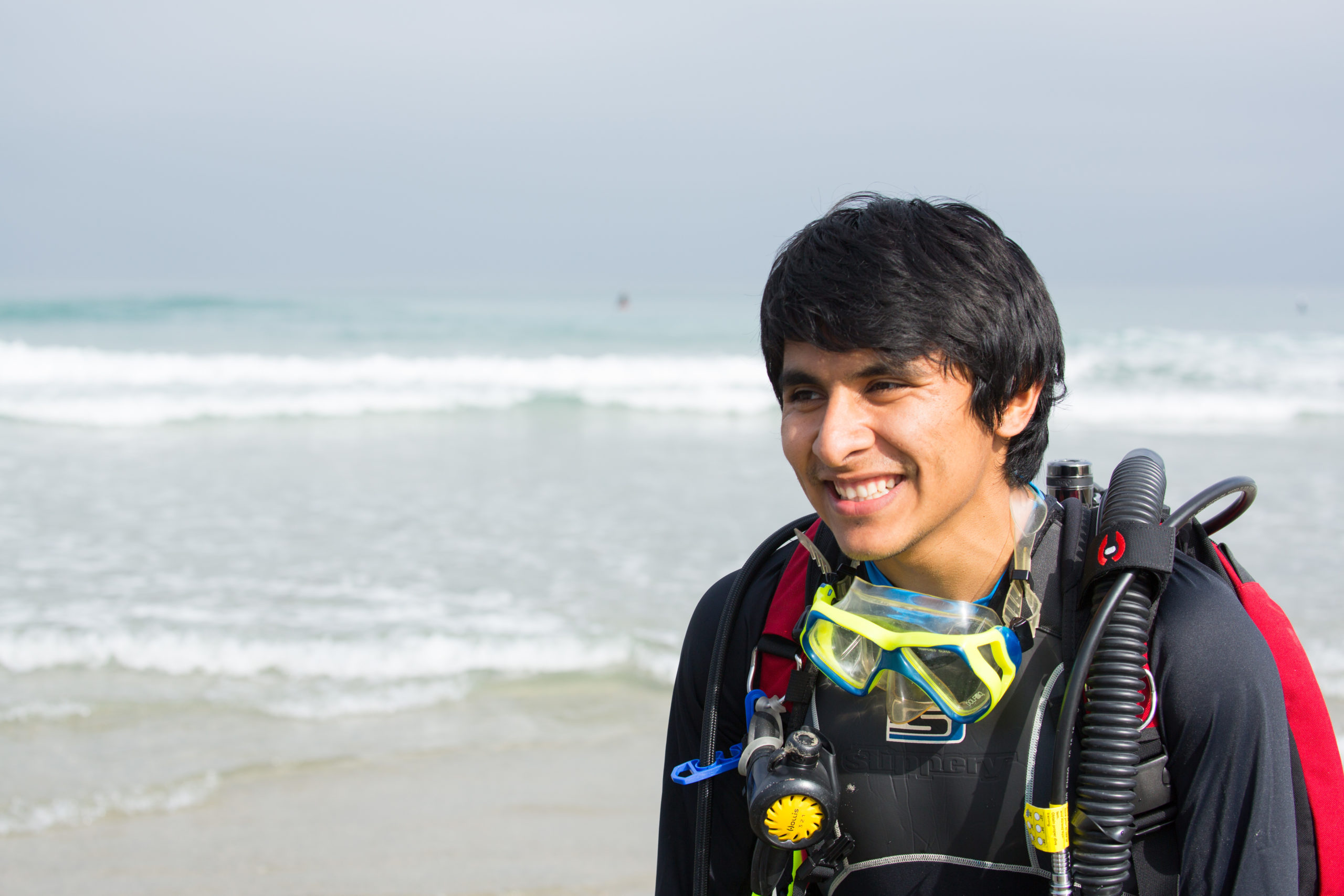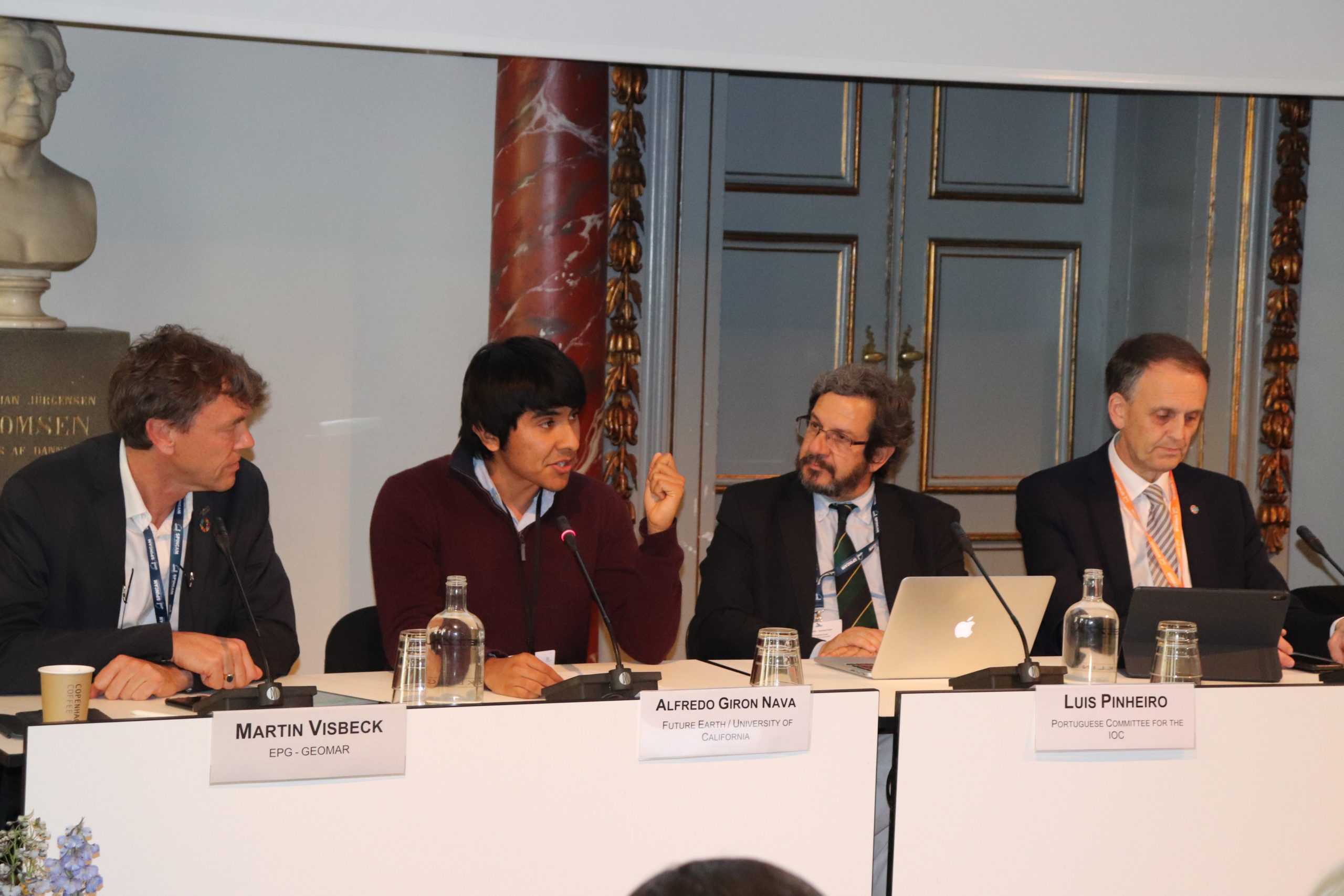The PEGASuS Program: A New, Exciting Model for Postdoctoral Researchers
In March 2019, as I was finishing my Ph.D. at the Scripps Institution of Oceanography, I was looking for opportunities to continue with my research and explore ways to move from science to concrete action. Unfortunately, as a non-U.S. citizen, many fellowships and programs were not accessible to me. As I started thinking about more ‘traditional’ research-oriented postdocs, one day I got 5 separate emails from people telling me about Future Earth’s Program for Early-stage Grants Advancing Sustainability Science (PEGASuS).
The PEGASUS postdoc offered a unique combination of responsibilities: (1) join the National Center for Ecological Analysis and Synthesis (NCEAS) at UC Santa Barbara to do research; (2) work with Future Earth to help translate science into ocean solutions; and (3) lead an independent project that could be research or policy oriented. For me, this was the whole package! And even better, there were two positions, which Erin Satterthwaite, now a great friend and colleague, and I got.

When we started this postdoctoral position, we both were eager to embed ourselves in the world of international ocean policy, learn about the key players, and better understand the process from the inside. Admittedly, we both had some, but limited, understanding of these processes beforehand.
In May 2019, we attended the 1st Global Planning Meeting of the UN Decade of Ocean Sciences for Sustainable Development (the Decade). This meeting was the kick-off event for a movement coordinated by the Intergovernmental Oceanographic Commission to bring together world experts from all sectors of society to try to reverse the declining health of our oceans over the next 10 years. While the event itself was fascinating, we soon realized that we were two of only four Early Career Ocean Professionals (ECOPs) participating in the event. When we raised this concern, the IOC gave us the opportunity to address the audience in the concluding remarks panel. Our message was clear: to ensure the long-term sustainability of the oceans, ECOPs like us needed to be included in all phases and events of the Decade. After we delivered this message, we received immense support from the IOC and many other institutions participating in the event. It was abundantly clear that our message resonated strongly with the participants, and we felt we had started a movement.
Following the Global Planning Meeting, we worked with the IOC to create a working group to include ECOPs in every aspect of the Decade. Within a few months, the original four members grew to a team of over 40 ECOPs from around the world, and we gained traction to start developing a global network with even representation across all continents. To date, the key successes of the group we co-led include:
- Designing a global survey to collect the science and capacity development needs and priorities of ECOPs around the world. We received more than 1400 responses from more than 100 countries in less than 3 months, making it the largest survey to marine scientists ever done. We delivered a report to the IOC with the key findings, which were incorporated into the Implementation Plan of the Decade.
- Incorporating diverse views, such as ECOPs, in every panel and event of the Decade. ECOPs are now a central part of the Decade’s framework and will hold leadership roles in the governing bodies and future committees. We hope that from now on, intergenerational diversity will become part of the culture of ocean sustainability.

On the research side at NCEAS, my project focused on research relevant to the Palauan government’s declaration of a National Marine Sanctuary that covers 80% of its Exclusive Economic Zone. I had the amazing opportunity to join a group co-led by Palau International Coral Reef Center (PICRC) and Stanford’s Center for Ocean Solutions (COS) to produce a report, commissioned by the Palauan President, on what to expect for the sanctuary. Some of the key questions that I helped address were related to their fisheries. Are their tuna fisheries going to be profitable? Will effort displacements impact coral reefs? The sanctuary was fully implemented in January 2020 and we are following the events as they develop in real time. As expected from the PEGASuS program, this is research directly in the science to action interface, and it has been truly exciting seeing the impact of our work.
The PEGASuS fellowship has had a profound impact on my career, at both a personal and professional level. One year ago, I was unfamiliar with most of the processes around ocean policy making.. Today, I am in direct and constant communication with a network of amazing professionals, including members of the NCEAS working group, the IOC Secretariat, and the members of the Decade’s Executive Planning Group, which includes leaders from all around the world.
As I come to the end of my PEGASuS postdoc, I can only be grateful for the amazing opportunity that this fellowship gave me to expand my networks and build the research foundations for real-world solutions in sustainability. It is my hope that this nascent program gets expanded and replicated by other institutions that want to train Early Career Ocean Professionals to become effective actors in moving scientific research to action.
The PEGASuS program is funded by the Gordon and Betty Moore Foundation Science Program and the NOMIS Foundation and administered by the School of Global Environmental Sustainability at Colorado State University, in partnership with the National Center for Ecological Analysis and Synthesis at UC Santa Barbara.
DATE
August 10, 2020AUTHOR
Alfredo GironSHARE WITH YOUR NETWORK
RELATED POSTS
PEGASuS Take-It-Further Grants Advance Research into Food-Water-Energy Nexus
Meet the new postdoctoral researchers for PEGASuS 2: Ocean Sustainability
Future Earth Norway